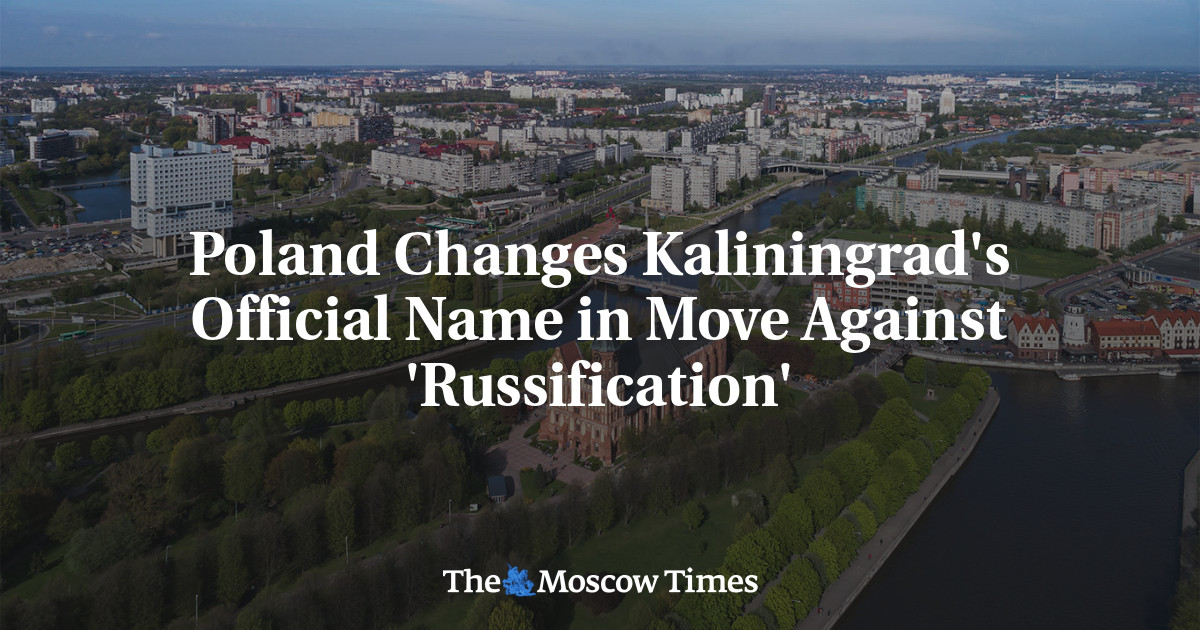
Poland will stop using the official name for Russia’s Kaliningrad enclave and revert to its historic equivalent, the government in Warsaw said Wednesday, drawing Moscow’s ire.
Citing a recommendation by a state commission tasked with standardizing foreign names in the Polish language, Poland’s development minister Waldemar Buda said Kaliningrad would now officially be called Konigsberg (“Krolewiec” in Polish).
“We do not want Russification in Poland and that is why we have decided to change the name in our native language of Kaliningrad and the Kaliningrad region,” Buda said in a statement on Wednesday.
The historic name for the enclave bordering Poland and Lithuania will now be used in official documents and maps, a move that triggered an angry response from Russia.
“It’s not even Russophobia anymore, these are processes close to madness that are going on in Poland,” Kremlin spokesman Dmitry Peskov told reporters.
“It brings no good to Poland. These are not just unfriendly actions: these are hostile actions,” he added.
Founded in 1255 by the Teutonic Order, the city was named in honor of the Bohemian King Ottokar II, and was known as Konigsberg — Krolewiec in Polish, Karaliaucius in Lithuanian, and Korolevets in Russian.
In 1946, it was renamed by the Soviet Union to Kaliningrad to honor the Chairman of the Presidium of the Supreme Soviet of the U.S.S.R., Mikhail Kalinin.
“The fact of naming a large city close to our border after Kalinin, a criminal co-responsible for, among others, issuing the decision on the mass murder of Polish officers in Katyn in 1940, evokes negative emotions in Poles,” Buda said.
It is estimated that 25,000 Poles, mostly army officers deemed anti-communist, were massacred by the Soviet Union’s political police in a forest near Smolensk in 1940 on the orders of Josef Stalin.
The Soviet Union had long denied responsibility for the killings, accusing the Nazis of the crime, before admitting the truth in 1990.